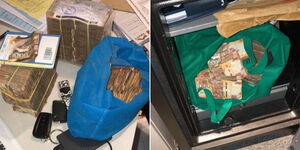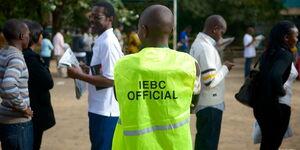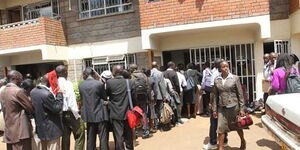A report by the Auditor General, Nancy Gathungu, has revealed the deteriorating condition of some Kenyan Embassies and High Commissions abroad.
Although financial mismanagement issues in the embassies were also reported, Gathungu noted that the physical state of the buildings raised concerns, stating, "Physical verification of assets in sampled Missions revealed the following unsatisfactory matters."
Starting with the Kenya High Commission in Abuja, Nigeria, the Auditor General revealed that the roofs of the chancery building, the High Commissioner’s residence, and the staff quarters were leaking and required urgent renovation.
In addition, a mission vehicle that had reportedly been stolen, according to a 2022 audit, had yet to be replaced, nor had an insurance claim been filed. The theft case remains open as the police have yet to make an arrest.
At the Kenyan Mission in Beijing, China, major security concerns were observed. Although the chancery building was located in the same compound as the ambassador's residence, there were no CCTV cameras to monitor activities within the building or security guards to man the mission. Smoke detectors were also absent.
As in Abuja, another vehicle issue arose, as a vehicle had been grounded for more than four years at the premises, its value continuing to deteriorate due to wear and tear. However, management explained that the vehicle had exceeded the mileage limit set by the host country’s regulations and, as a result, could not be insured.
The Kenyan Mission in Berlin, Germany, also suffered from a damaged roof and leaks, particularly on the attic terrace balcony. The chancery recorded additional defects, including cracks in the walls, malfunctioning hydraulic and locking systems on the gate, a deteriorating verandah, damage to the exterior ceiling on the first floor, and peeling paint throughout the building, among other issues.
Two deregistered motor vehicles, which had been approved for disposal, remained unsold and dormant on the mission's premises.
An inspection of the building, conducted following the end of the tour of duty of the immediate former Head of Mission, revealed that various items from the inventory list were missing. However, no explanation or evidence of action taken to establish the loss was provided.
Matters were significantly worse at the neighbouring Kenyan Mission in Dar es Salaam, Tanzania, where a five-acre parcel of land acquired in Dodoma had yet to be secured through fencing, increasing the risk of encroachment.
An inspection further revealed that renovations on two staff houses in Mikocheni, costing approximately Ksh3.4 million, had stalled in 2020. In a more damning revelation, a residential house belonging to one of the agencies was sold in December 2021 for Ksh20 million, but the funds had yet to be remitted to the State Department of Foreign Affairs.
In France, the chancery at the Kenyan Mission in Paris recorded major cracks running from the ground floor to the third floor. The building also showed evidence of basement and yard flooding, ceiling leaks, and peeling wall paint.
The Ambassador’s residence in Paris was also in a dire state, with damaged fittings, roof tiles, and corroded gutters due to a lack of routine maintenance.
The issues observed in Riyadh, Saudi Arabia, and Tel Aviv, Israel, were even more concerning, as they not only involved physical deterioration but also raised questions regarding the ownership of the properties on which the missions stood.
In Riyadh, although there were documents purporting Kenya's ownership of a chancery and an official residence the mission only had copies of the sale agreements with no evidence that the Embassy had been included in the ownership document.
Tel Aviv also did not have evidence provided of a registered right of ownership. In addition, the building did not have any insurance coverage.












